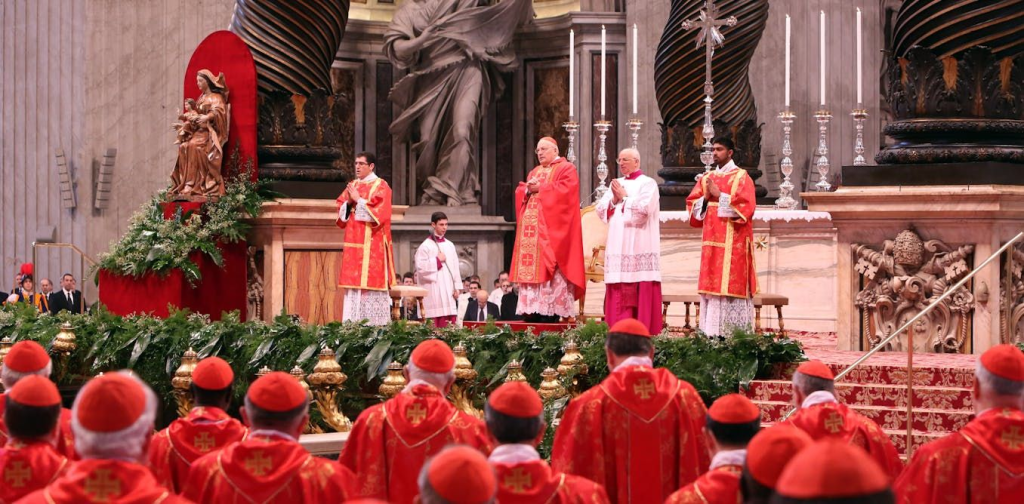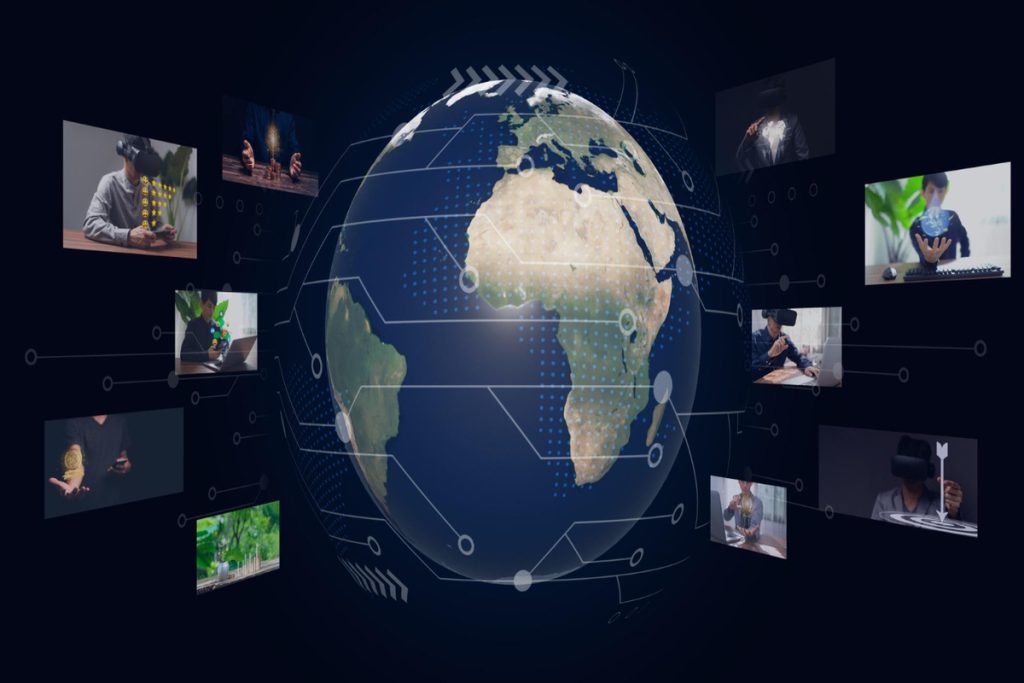The discussion surrounding the next pope is heating up as the Catholic Church stands at a crucial crossroads following the death of Pope Francis. Millions of faithful are eager to know whether the next Catholic leader will continue Francis’ initiative towards inclusivity and reform, or revert to more traditional practices that some feel are necessary for preserving the church’s longstanding values. With 1.4 billion Catholics worldwide, the future of Catholicism is in question, and the selection of Pope Francis’ successors is pivotal in shaping the direction of the Catholic Church. As conversations about Catholic Church leadership evolve, questions about progressive and conservative approaches to issues like LGBTQ rights and immigration intensify. The next pope has an incredible responsibility to navigate these complexities, ensuring that Catholic Church reform complements the modern world while respecting foundational doctrines.
In the wake of Pope Francis’ passing, the spotlight is now on the impending selection of the next papal leader, sparking debates across the globe about the future direction of the Catholic faith. Anticipation surrounds the possibility of his successors taking up the mantle to build upon the progressive agenda set forth by Francis, or whether a return to classical Catholic traditions is on the horizon. This pivotal moment raises important questions regarding the adaptation of the church to contemporary societal challenges while remaining true to its historical roots and values. Will the new pontiff seek to address pressing social justice issues faced by followers or prefer a more traditional path, influencing global attitudes towards Catholicism? As the cardinals prepare for conclave, the conversation reflects a deep engagement with the realities of faith, tradition, and the overarching mission of the church in a rapidly changing world.
The Legacy of Pope Francis and the Next Pope’s Challenges
Pope Francis’ legacy is marked by a progressive approach that prioritized social justice, equality, and inclusivity. In the years of his papacy, he brought forth messages aimed at embracing marginalized communities including the LGBTQ+ individuals and immigrants, which has been pivotal in making the Catholic Church more relatable to a modern audience. His death leaves 1.4 billion Catholics wondering who will bear the mantle of leadership next. The next pope will need to decide if they will continue down the path set by Francis, revert to traditionalist beliefs, or find a new middle ground that balances these opposing views.
The selection of the next pope is critical as it will shape the future of Catholicism in a rapidly changing world. With followers dwindling in some regions, particularly in the West, while experiencing growth in others, notably Africa and parts of Asia, the next Catholic leader will have to tackle pressing global issues. These may include wealth inequality, social justice, and the church’s role in interfaith dialogues, especially concerning Islam, which are increasingly vital in the Global South. The next pope will not be able to ignore the complexities associated with these diverse cultures while striving to maintain cohesion within the Catholic Church.
Potential Successors to Pope Francis: A Look at the Candidates
In the wake of Pope Francis’ passing, the speculation regarding his potential successors has intensified. Names are being floated, ranging from conservative cardinals who uphold traditional Catholic doctrine to progressive figures who may look to advance Francis’ reforms. Each candidate brings their own perspective on the direction of the Catholic Church’s engagement with contemporary society and its followers. The cardinals are faced with the daunting task of selecting a leader who can unify a divided following amidst competing ideologies and practices.
The next pope must address a key question about the church’s stance on hot-button issues such as abortion, marriage equality, and immigration. These matters not only resonate in Western countries but also influence the church’s social teachings in regions where Catholicism is experiencing dramatic growth. The cardinals’ choice could reflect either a repudiation of Francis’ inclusive policies or a commitment to advancing them, shaping the Catholic Church leadership for the next generation.
The Importance of Inclusivity in the Next Papacy
Inclusivity has been a cornerstone of Pope Francis’ teachings, emphasizing the need for the Catholic Church to embrace diversity and address social injustices. For many Catholics, the importance of having a leader who embodies these values cannot be overstated. The next pope has a vital role in continuing to advocate for marginalized groups, including the LGBTQ+ community, while also appealing to traditionalists within the church. Finding this balance is crucial to rejuvenating faith and engagement among younger congregants, who often lean towards more progressive views.
The future of Catholicism relies on the church’s ability to resonate with the broader societal movements around acceptance and social justice. The next Catholic leader must articulate a vision that reflects both the desire for tradition and the need for reform. This involves revisiting the conversations around inclusivity and engaging in a dialogue that honors the church’s rich heritage while also paving the way for a more welcoming community.
Traditionalism vs. Modernity in the Next Papacy
The Catholic Church finds itself at a crossroads between traditional values and modern complexities, a tension that the next pope will undoubtedly need to navigate. As seen through the lenses of past papacies, including that of Francis, the struggle to reconcile deeply embedded traditions with contemporary societal issues remains a significant challenge. Potential successors may either push for a return to tradition, which appeals to many long-time church members, or maintain a progressive stance that invites a broader audience to engage with the Catholic faith.
Navigating this delicate balance will be essential for the future of the Catholic Church, especially in regions experiencing vast societal shifts due to globalization and intercultural dialogues. While some segments of the congregation express a yearning for the ‘status quo’, others advocate for the recognition of social justice issues and the church’s inclusivity. The next pope’s approach will have lasting implications on Catholic identity and the church’s position in a world keenly observing its evolution.
Addressing Global Inequalities in the Context of Catholicism
Global inequalities present a significant challenge for the next pope as they seek to connect with a diverse Catholic population that spans various socio-economic backgrounds. The Catholic Church has historically played a role in championing social justice, and continuing this mission will require the next leader to prioritize outreach and support for communities facing poverty and discrimination. This is particularly relevant in parts of Africa and Latin America, where the church must address the pressing needs of its followers.
The next Catholic leader’s vision will be instrumental in how the church responds to issues such as wealth disparity, education, and healthcare access. By prioritizing these areas, the church can fulfill its mission to serve all of humanity and reflect Christ’s teachings. As global discussions around inequality grow, the Catholic Church has an opportunity to reaffirm its position as a moral compass in the face of adversity and become a champion for those who are often left voiceless.
Interfaith Relations: The Next Pope’s Role
The next pope has a critical opportunity to enhance interfaith relations and dialogue, especially in a world increasingly characterized by division and conflict. As Pope Francis has shown, building bridges between different faiths contributes not only to peace but also to mutual understanding and respect. The complexities of religious plurality require a pope capable of engaging with various religious leaders, advocating for collaboration on global issues such as poverty, migration, and climate change.
To truly embody the spirit of inclusivity and social justice, the next Catholic leader must actively work toward fostering relationships with non-Catholic communities. This effort can address misunderstandings and challenges that arise from differing beliefs while reinforcing the church’s commitment to dialogue and cooperation. This approach is vital in establishing the Catholic Church as a transformative force for good in the world, advocating for a more compassionate and just society for all.
Navigating Political Divisions within the Catholic Church
Political divisions within the Catholic Church itself present a complex landscape for the next pope. The disparate views on social issues among American bishops and laity highlight a critical need for a leader who can navigate these challenges skillfully. With a more conservative base emerging among younger Catholics, the next pope must understand how to address these differences without alienating factions within the church.
The next leader’s approach to political realities must also consider the broader implications of their papacy on the church’s public perception and institutional stability. Maintaining unity is not only essential for the church’s internal peace but also for its effectiveness in engaging with external societal challenges. As various Catholic communities navigate their political affiliations, the next pope will require a diplomatic touch to foster inclusivity while respecting the valid concerns of all congregants.
Future Directions for Catholicism: Continuity and Change
The future of Catholicism hinges on the delicate balance of continuity and change as the next pope steps into the role. While some segments of the church long for a return to moral and doctrinal clarity, others advocate for a progressive vision that reflects contemporary values. This tension embodies the broader cultural shifts that society is experiencing and may very well dictate how the church evolves in the coming years.
As the next Catholic leader lays out their vision for the church, embracing both traditional tenets and the need for reform will be essential. This duality can ensure that the Catholic faith remains relevant in a rapidly changing world, supporting a community that feels both firmly rooted in tradition yet responsive to modern challenges. Only time will tell how the new pope will navigate this intricate landscape, but the choices made now will resonate for generations to come.
Frequently Asked Questions
Who will be the next pope after Pope Francis?
The next pope will be chosen by a conclave of cardinals following the death of Pope Francis. Potential successors are being speculated upon, and candidates vary widely in their views on Catholic Church leadership.
What challenges will the next Catholic leader face?
The next Catholic leader will have to navigate a divided church, with differing views on social issues, tradition, and reform. They must unify the global Catholic community while addressing the needs of both faithful and progressive factions.
How might the future of Catholicism change with the next pope?
The future of Catholicism could shift significantly based on the next pope’s approach. They may continue or reverse Pope Francis’ progressive reforms, impacting inclusivity and church practices.
What reforms in the Catholic Church might the next pope consider?
The next pope may consider reforms that address contemporary issues such as social justice, inclusion of marginalized groups, and the balance between traditional practices and modern needs within the Catholic Church.
Is there a possibility for a return to traditional Catholic practices by the next pope?
Yes, there is a possibility for the next pope to return to traditional practices, as many within the church desire a leader who respects longstanding customs, especially in the context of mass and liturgy.
What is the importance of Pope Francis’ message for the next pope?
Pope Francis’ message of inclusivity and social justice presents a significant legacy that the next pope will either continue to promote or reassess, particularly in a global context where Catholicism is growing.
How will the election of the next pope impact global Catholic communities?
The election of the next pope will impact global Catholic communities by influencing church policies that affect social justice, family issues, and interfaith dialogue, particularly in regions like Africa and Asia where the church is growing.
What are the potential implications of having a progressive versus a traditional pope?
A progressive pope may push for reforms that increase inclusivity, while a traditional pope may enforce existing doctrines and practices, affecting congregational dynamics and membership across the Catholic Church.
What are the expectations for the next pope in relation to social issues?
Expectations for the next pope include addressing social issues such as poverty, immigration, and marriage equality, particularly emphasizing pastoral care and global outreach, in line with current Catholic Church leadership trends.
Could the next pope foster unity within the divided Catholic Church?
The next pope will be challenged to foster unity within a divided Catholic Church by balancing various factions’ interests and addressing both traditionalist and reformist concerns effectively.
| Key Point | Details |
|---|---|
| Pope Francis’ Death | Pope Francis passed away at 88, leaving the Church at a crossroads between progressivism and tradition. |
| Progressive Path | His leadership emphasized inclusivity, social justice, and acknowledgment of marginalized groups. |
| Traditionalist Views | Many long for a return to traditional practices, including the Latin Mass and conservative church doctrine. |
| Diverse Global Catholicism | The church’s growth is seen primarily in Africa and Asia, while the U.S. Catholic population stabilizes. |
| Future Leadership Challenges | The next pope will need to unify a divided Church amidst evolving social issues and demographic shifts. |
| Cardinal Conclave | The cardinals will select the next pope, likely considering both continuity and change from Francis’ reforms. |
Summary
The next pope stands at a pivotal moment for the Catholic Church, as the legacy of Pope Francis shapes the expectations of 1.4 billion faithful. As anticipation builds around the selection of the new leader, the Church must navigate the balance between maintaining progressive values and responding to calls for traditional practices. The choice of the next pope will not only define the Church’s path forward but also address the diverse needs of its global congregation.



